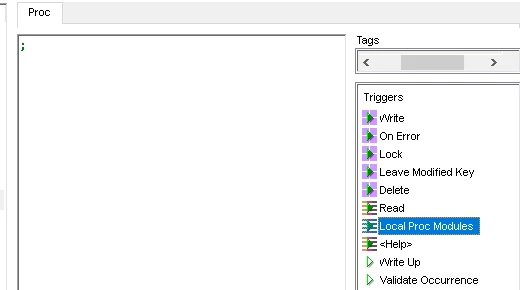Hi all
I'm migrating a 9.7 repository to version 10. I have an issued that seems related with new inheritance rules but it is not.
There are a local proc entry in a modeled entity. And a form that uses this modeled entity BUT has Local Proc trigger commented (replaced by ; ) as this form does not need or want local procs defined.
When these forms are migrated to version 10, Local procs trigger is migrated as
;- [Start 'Local Proc Modules'] ; ;- [End 'Local Proc Modules']
So, there is no component definition to overlay modeled. So, modeled definition is compiled in version 10 but it doesn't in version 9.
It should be not a problem but their mere existence raise compilation errors (they use undefined component variables). It should be not a problem because (I hope) no one within the form tries to call a removed entry.
The question could be if there is any way for migration to automatically detect these issues and break inheritance.
Is it safe to use #define BreakInheritance_ent_ENTITYNAME on those affected components?
Or maybe is better to come back to the source in v9 and replace empty LocalProcsModules by empty Local Procs definitions:
entry NAME1 end entry NAME2 end
This helps everything work as expected.
Best wishes
Luis Vila

